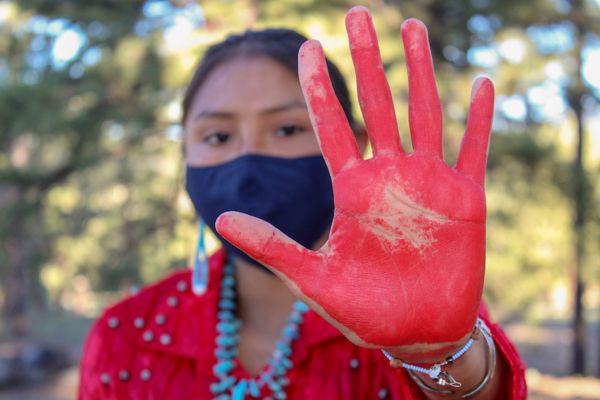
- Details
- By Elyse Wild
Alaska Governor Mike Dunleavy signed legislation last week to address the state's Missing and Murdered Indigenous Persons (MMIP) crisis.
Senate Bill 151 will establish a nine-member commission tasked with reviewing unsolved MMIP cases and making policy, practice, and service recommendations to the state legislature and the Department of Public Safety.
The commission will seat representatives from victim advocacy groups and Alaska Native Tribal organizations, police departments, village public safety departments, two members from the legislature, and a prosecutor with experience in homicide cases.
The commission meetings will be closed to the public.
The MMIP crisis is prevalent across the country, with Indigenous peoples being murdered at a rate up to ten times the national average. Homicide is one of the leading causes of death for Native women. While the Bureau of Indian Affairs estimates there are 4,200 unsolved MMIP cases, the actual number is likely higher, Native advocates say.
Advocates and lawmakers have identified multiple drivers of the MMIP crisis:
- Egregiously underfunded tribal law enforcement
- Jurisdictional confusion between tribal, local, state police and the BIA
- Exclusion of Indigenous people in data
- Underwhelming media coverage
According to the National Missing Persons Database (NamUS), in 2021, Alaska topped the list of states with the most unsolved missing person cases among American Indian and Alaska Native cases at 292.
SB 151 was first introduced last May and received support from various Alaska Native groups.
In January 2024, a letter from the Alaska Native Women's Resources Center suggested the bill include language to: "create a review of the commission and reports before sunsetting these two programs to ensure that there has been an adequate amount of time to address all the needs, ideas and solutions. 2) include mandatory cultural training provided by an Indigenous organization, tribe or contractor for all law enforcement."
The bill also requires the Alaska Department of Public Safety (DPS) to file a missing persons report to the National Missing and Unidentified Persons System within 60 days of a report being filed at the local level. DPS will also employ at least two full-time MMIP investigators.
Along with the Alaska Native Women's Resources Center, the bill was supported by Planned Parenthood Alliance Advocates and the Fairbanks Native Association.
The law will take effect on January 1, 2025.
More Stories Like This
This National Cancer Prevention Month, Reduce Your RiskNew Mexico Will Investigate Forced Sterilization of Native American Women
USDA Expands Aid for Lost Farming Revenue Due to 2025 Policies
Two Feathers Native American Family Services Wins 2026 Irvine Leadership Award
Bill Would Give Federal Marshals Authority to Help Tribes Find Missing Children


